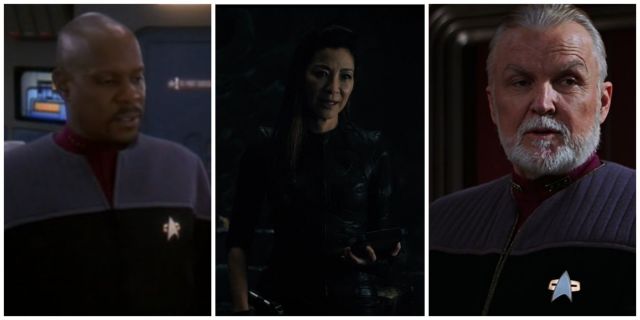Highlights
- The Federation’s dark side is revealed through blackmailing and trickery in political and wartime scenarios.
- The actions of key figures like Captain Sisko and Janeway raise ethical questions about Federation ideals.
- Section 31’s drastic measures, including attempted genocide, show the darker side of the Federation’s morality.
Star Trek‘s United Federation of Planets may ostensibly be the franchise’s good guys, but even sci-fi’s most progressive utopia has a few skeletons in its closet. This is hardly surprising: Captain Jonathan Archer, a key figure in the founding of the Federation, was not averse to indulging in occasional piracy or torture during his time in command of the Enterprise NX-01. And, while the Federation has many positive aspects, it seems that the apple doesn’t fall far from the tree regarding the great power’s flaws.
Many of the Federation’s worst excesses can be explained (if not excused) by the existence of dire threats or states of widespread conflict. Some, however, are more personal, leading to long-held fan grudges that still simmer decades after the acts themselves. From political machinations to every flavor of war crime, the Federation is hardly blameless, even if the ends sometimes justify the means.
6 Blackmailing Qo’nos
That’s One Way To Win A War
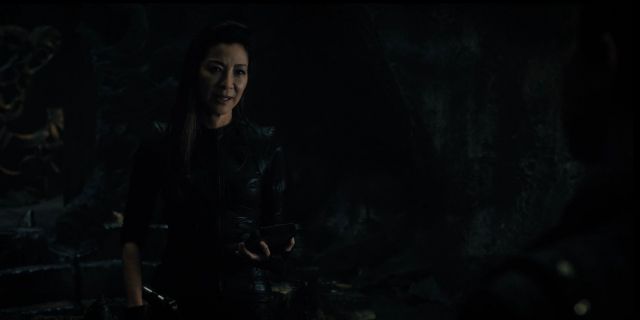
- Star Trek: Discovery: “Will You Take My Hand?” (Season 1, Episode 15)
Fans remain split on Star Trek: Discovery. Is it a bold new take on the classic franchise, or does it miss the point by several light-years? Whatever the case, one thing is clear when it comes to the Federation’s actions at the end of the show’s first season: they’re as villainous as they are incoherent. Discovery‘s debut season focuses on a dangerous conflict between the Federation and the militaristic Klingon Empire; faced with the risk of imminent defeat, the Federation enlists the help of Emperor Georgiou, a genocidal dictator from the Mirror Universe.
Georgiou’s scheme is as silly as anyone should expect from a Mirror Universe inhabitant. Discovery travels to the Klingon homeworld and hides a bomb inside the planet’s crust. While Georgiou’s initial plot to destroy the planet is foiled, the Federation uses the bomb as leverage, essentially blackmailing the Klingons into accepting a puppet ruler with pro-Federation policies. Enforced regime change on a grand scale is hardly the action of a benevolent state, suggesting that the Federation is less virtuous than it likes to pretend.
5 Tricking The Romulans
Desperate Times Call For Desperate Measures
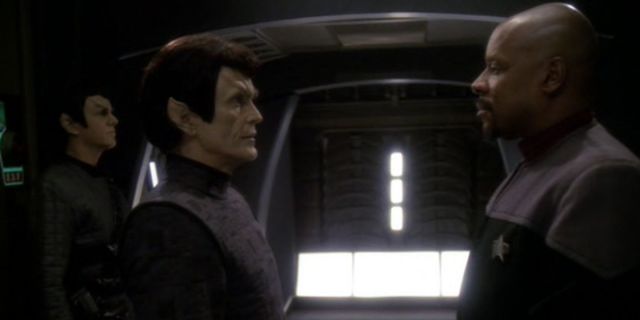
- Star Trek: Deep Space Nine: “In the Pale Moonlight” (Season 6, Episode 19)
“In the Pale Moonlight” is one of the Star Trek franchise’s most iconic episodes. Set during the Federation’s darkest days, the episode sees Captain Sisko enlist the help of former spy Elim Garak to bring the Romulan Star Empire into the war on the allied side. The devious Romulans are unwilling to join forces with their Federation rivals, so Sisko and Garak are forced to use a blend of deception and diplomacy to achieve their strategic goals.
Admittedly, Garak is responsible for many of the scheme’s more villainous aspects, such as orchestrating the death of a Romulan senator to implicate the Dominion. However, Sisko (and by extension the Federation) is a driving force behind the plot. Bringing the Romulans into the war proves essential for ensuring an eventual Federation victory, but the Federation’s methodology for doing so remains questionable. Yet, as Sisko points out, he will simply have to live with his villainy.
4 The Forced Deportation Of The Ba’ku
Do The Ends Ever Justify The Means?

- Star Trek: Insurrection
Deep Space Nine‘s Dominion War sent shockwaves throughout the franchise, with its impact felt in a range of TV shows, novels, and movies. Indeed, despite featuring characters from The Next Generation, Star Trek: Insurrection (1998) examines the Federation’s ethics during wartime. Dominion forces are overwhelming the Federation Alliance at every turn, but the planet of Ba’ku may prove to be a secret weapon. The Federation plans to use Ba’ku’s naturally medicinal environment as a hospital for its war effort, but there’s a problem.
The planet is already home to the Ba’ku people, and the Federation becomes embroiled in a plot to forcibly relocate the native population to another planet. This policy becomes even harder to defend once it becomes apparent that the supposedly friendly Son’a have their own vendetta against the Ba’ku. It’s no wonder, then, that Captain Picard and his crew elected to defy the Federation in this case. Picard may be one of the Federation’s most famous figures, but he refuses to be complicit in its wrongdoing.
3 Using Bioweapons To Poison A Planet
Did Captain Sisko Go Too Far?
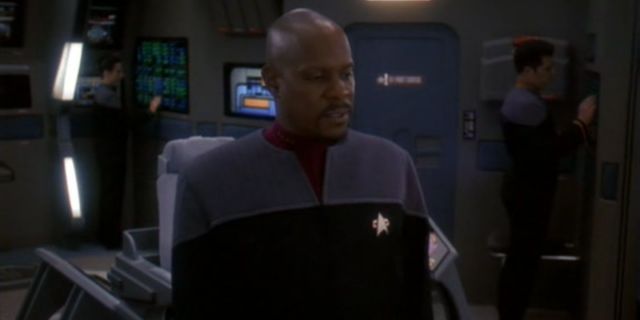
- Star Trek: Deep Space Nine: “For the Uniform” (Season 5, Episode 13)
When does the quest for justice become a bloody hunt for revenge? This question is posed by “For the Uniform,” an episode that pits the morally gray Captain Sisko against the traitorous Eddington, a member of the Maquis terrorist group. The Maquis plan to deploy biological weapons to drive the alien Cardassians away from planets which the Marquis claim for themselves. Sisko, however, turns the plot on its head by using his biological weapons against the planets, making them uninhabitable for humans.
Sisko’s decision to devastate an entire planet is one of Star Trek‘s most shocking moments, and this is emphasized by Worf’s initial hesitation to obey Sisko’s command. Sisko believes that drastic action is the only way to force Eddington to surrender, but fans continue to debate whether the Emissary of the Prophets let his emotions cloud his judgment. Eddington made a fool of Sisko by betraying and then openly attacking the Federation—in doing so, he pushed Sisko into ordering one of the Federation’s most evil acts.
2 The Attempted Genocide Of The Founders
When Does Warfare Become A War Crime?
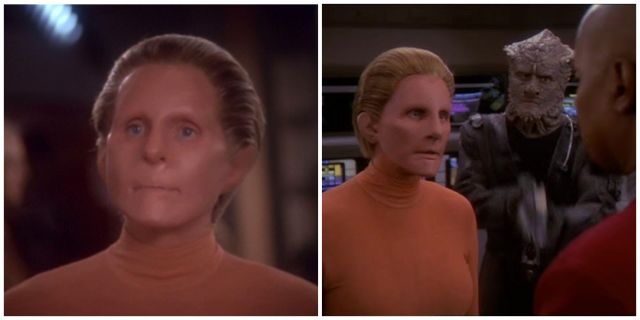
- Star Trek: Deep Space Nine: “What You Leave Behind” (Season 7, Episodes 25 & 26)
The Federation may be a place of intellectual progress and equality, but its benevolence conceals a seedy underbelly. Section 31, a Federation intelligence agency with a broad remit and a questionable moral compass. Section 31 and its agents are responsible for some heinous actions, such as blackmailing Starfleet officers and employing villains from the Mirror Universe. However, Section 31’s most radical scheme involves the attempted genocide of the Dominion’s Founders.
The Federation, via Section 31, infects the Founders with a morphogenic virus that is designed to exterminate the species. While this would bring about the end of the devastating Dominion War, it demonstrates that the road to hell is paved with good intentions. Luckily, good intentions save the Federation in the long run, as curing the disease convinces the Founders to end the war.
1 Janeway’s Murder (?) Of Tuvix
Can Kathryn Janeway Ever Be Redeemed?
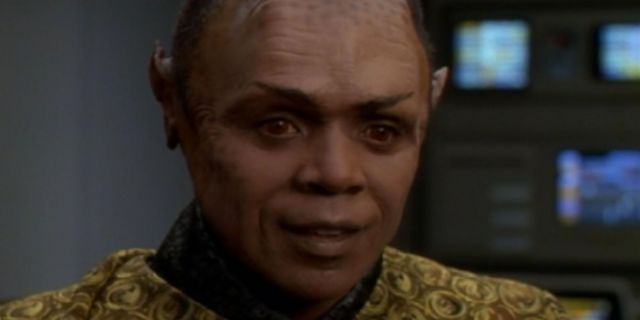
- Star Trek: Voyager: “Tuvix” (Season 2, Episode 24)
Kathryn Janeway may be just one Starfleet captain, but she and her starship represent the whole of the Federation’s presence in the far-off Delta Quadrant. As such, many of her actions have raised fans’ eyebrows, from allying with the Borg against Species 872 to falling in love with a holographic character (and deleting his wife from the program). However, viewers are especially disgusted by Janeway’s treatment of Tuvix, a hybrid inadvertently created from the Vulcan Tuvok and the Talaxian Neelix.
Tuvix is sentient, displays a unique sense of self and identity, and makes it clear that he wants to live. Janeway, however, sees things from a more utilitarian perspective: she’s lost one of her best officers due to Tukov’s hybridization into Tuvix. Her decision to overrule Tuvix’s right to exist to restore the status quo represents Janeway at her most ruthless, and many fans have yet to forgive Star Trek‘s first female captain. As Federation crimes go, it’s a small one, but some still take it personally.






